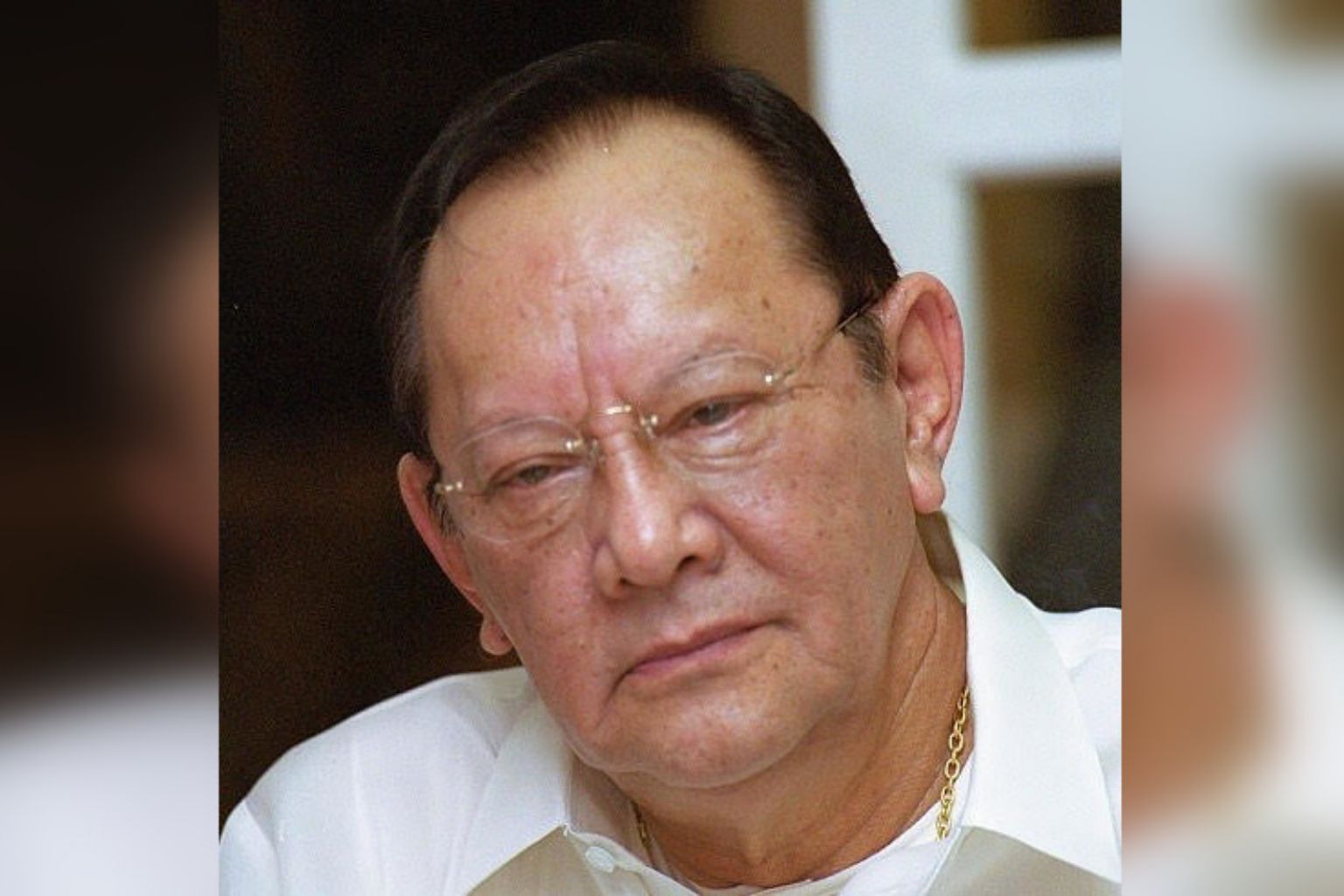Philippine 'kingmaker', tycoon and Marcos ally Danding Cojuangco dead at 85
Sign up now: Get insights on Asia's fast-moving developments

Eduardo Cojuangco ran for president in 1992, but lost in a close race to former defence minister Fidel Ramos.
PHOTO: PHILIPPINE DAILY INQUIRER/ASIA NEWS NETWORK
MANILA - Eduardo Cojuangco, a businessman who built a fortune thanks to his close ties with the late dictator Ferdinand Marcos and who became a 'kingmaker' in Philippine politics, died of lung cancer on Wednesday (June 17) aged 85.
At the time of his death, Cojuangco was the 15th richest man in the Philippines. His estimated net worth was around US$1.1 billion (S$1.53 billion).
He was considered to be part of a cabal of 12 influential men who ran the Philippines until Marcos was ousted by a popular uprising in 1986.
During the Marcos years, Cojuangco became embroiled in what came to be later known as the "coco levy scam".
He oversaw the creation of a 100 billion-peso (S$2.78 billion) trust fund from additional taxes levied on coconut farmers.
But instead of helping the farmers, the fund was used to bankroll the purchase of controlling shares in United Coconut Planters Bank and San Miguel.
Cojuangco took control of San Miguel, the country's biggest food and beverage firm, in 1984.
But two years later, he was forced to flee the Philippines with the Marcoses, following a military-backed "People Power" revolt.
The uprising was stoked by years of crushing poverty and widespread corruption under the Marcos regime and was sparked off by the assassination of former senator Benigno Aquino in 1983, Marcos' main rival and husband of Mr Cojuangco's cousin, Corazon Aquino.
Mrs Aquino rose to power in 1986, forcing Cojuangco to cede control of San Miguel, as the new government began pursuing Marcos' old cronies.
Government prosecutors accused Cojuangco of illegally amassing his fortune during the Marcos years. But he was never convicted nor sent to jail.
Cojuangco spent most of his exile in Australia, where he bred and raced horses.
He would eventually return to the Philippines in 1989 and set off on a remarkable comeback.
He formed a political party, the Nationalist People's Coalition, and ran for president in 1992, but lost in a close race to former defence minister Fidel Ramos.
Pundits said at the time he would have won, had former first lady Imelda Marcos, who had a falling out with Cojuangco, not thrown her hat into the ring and split the voting bloc loyal to the Marcos family.
After that foray, Cojuangco melted into the background, but continued to wield considerable political influence.
He helped bankroll the successful presidential run in 1998 of former actor Joseph Estrada, another Marcos loyalist and his running mate in the 1992 race.
With Estrada as president, Cojuangco regained control of San Miguel.
During his second stint as its leader, the company expanded by buying the local Coca-Cola franchise, Australia-based National Foods and other businesses.
In 2008, Cojuangco broadened the company's base by investing in the energy sector, seeing more growth potential there.
He orchestrated the rise of his protégé, Mr Ramon Ang, to the company presidency.
Mr Ang continues to helm San Miguel, which he has extensively diversified with a series of mergers and acquisitions largely bankrolled by debt.
After Estrada was himself ousted over corruption allegations in 2001, Cojuangco allied himself with then Vice-President Gloria Arroyo.
Mrs Arroyo served as president for nine years.
While he picked a rival candidate to Mr Rodrigo Duterte in the 2016 presidential race, he eventually cast his lot with the country's incumbent president.
News of his death was met with sadness by his allies.
Former senator Ferdinand Marcos Jr, son and namesake of the dictator, called Cojuangco a "rock" in his life.
Senator JV Ejercito, a son of Estrada, said in a Twitter post Cojuangco was "a very nice person with a kind heart. Super nice to me. He will be missed".
Eduardo Murphy Cojuangco Jr., known as "Danding," was born in Manila on June 10, 1935, to a family that controlled business and politics in Tarlac province, north of the capital.
In 1965, while losing a bid for a congressional seat, he cemented his ties to Marcos, his party's successful presidential candidate.
"I will never deny that I was close to Marcos," Cojuangco told reporters in 1998. "It is the connotation that a crony is a crook that hurts."


